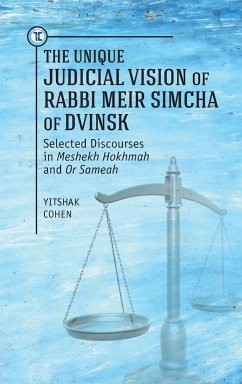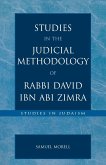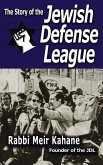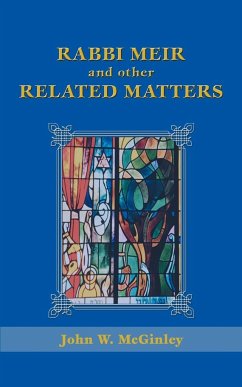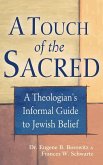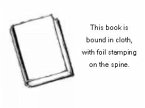Yitshak CohenSelected Discourses in Meshekh Hokhmah and Or Sameah
The Unique Judicial Vision of Rabbi Meir Simcha of Dvinsk
Selected Discourses in Meshekh Hokhmah and Or Sameah
Herausgeber: Basser, Herbert
Yitshak CohenSelected Discourses in Meshekh Hokhmah and Or Sameah
The Unique Judicial Vision of Rabbi Meir Simcha of Dvinsk
Selected Discourses in Meshekh Hokhmah and Or Sameah
Herausgeber: Basser, Herbert
- Gebundenes Buch
- Merkliste
- Auf die Merkliste
- Bewerten Bewerten
- Teilen
- Produkt teilen
- Produkterinnerung
- Produkterinnerung
Analyzes the exceptional normative impact of R. Meir Simcha Hacohen's Biblical commentary, Meshekh Hokhmah, and his halakhic commentary, Or Sameah.
Andere Kunden interessierten sich auch für
![Studies in the Judicial Methodology of Rabbi David ibn Abi Zimra Studies in the Judicial Methodology of Rabbi David ibn Abi Zimra]() Samuel MorellStudies in the Judicial Methodology of Rabbi David ibn Abi Zimra106,99 €
Samuel MorellStudies in the Judicial Methodology of Rabbi David ibn Abi Zimra106,99 €![The Story of the Jewish Defense League by Rabbi Meir Kahane The Story of the Jewish Defense League by Rabbi Meir Kahane]() Rabbi Meir KahaneThe Story of the Jewish Defense League by Rabbi Meir Kahane34,99 €
Rabbi Meir KahaneThe Story of the Jewish Defense League by Rabbi Meir Kahane34,99 €![Rabbi Meir and Other Related Matters Rabbi Meir and Other Related Matters]() John W. McGinleyRabbi Meir and Other Related Matters17,99 €
John W. McGinleyRabbi Meir and Other Related Matters17,99 €![Ha-Meir La-Aretz Ve-la-Darim Ha-Meir La-Aretz Ve-la-Darim]() Max FrankelHa-Meir La-Aretz Ve-la-Darim47,99 €
Max FrankelHa-Meir La-Aretz Ve-la-Darim47,99 €![A Touch of the Sacred A Touch of the Sacred]() Eugene B. BorowitzA Touch of the Sacred25,99 €
Eugene B. BorowitzA Touch of the Sacred25,99 €![Halakhic Positions of Rabbi Joseph B. Soloveitchik Halakhic Positions of Rabbi Joseph B. Soloveitchik]() Aharon ZieglerHalakhic Positions of Rabbi Joseph B. Soloveitchik172,99 €
Aharon ZieglerHalakhic Positions of Rabbi Joseph B. Soloveitchik172,99 €![Mekhilta According to Rabbi Ishmael Mekhilta According to Rabbi Ishmael]() Jacob NeusnerMekhilta According to Rabbi Ishmael77,99 €
Jacob NeusnerMekhilta According to Rabbi Ishmael77,99 €-
-
-
Analyzes the exceptional normative impact of R. Meir Simcha Hacohen's Biblical commentary, Meshekh Hokhmah, and his halakhic commentary, Or Sameah.
Hinweis: Dieser Artikel kann nur an eine deutsche Lieferadresse ausgeliefert werden.
Hinweis: Dieser Artikel kann nur an eine deutsche Lieferadresse ausgeliefert werden.
Produktdetails
- Produktdetails
- Verlag: Academic Studies Press
- Seitenzahl: 188
- Erscheinungstermin: 1. Mai 2016
- Englisch
- Abmessung: 240mm x 161mm x 15mm
- Gewicht: 452g
- ISBN-13: 9781618114891
- ISBN-10: 1618114891
- Artikelnr.: 44269341
- Herstellerkennzeichnung
- Libri GmbH
- Europaallee 1
- 36244 Bad Hersfeld
- gpsr@libri.de
- Verlag: Academic Studies Press
- Seitenzahl: 188
- Erscheinungstermin: 1. Mai 2016
- Englisch
- Abmessung: 240mm x 161mm x 15mm
- Gewicht: 452g
- ISBN-13: 9781618114891
- ISBN-10: 1618114891
- Artikelnr.: 44269341
- Herstellerkennzeichnung
- Libri GmbH
- Europaallee 1
- 36244 Bad Hersfeld
- gpsr@libri.de
Yitshak Cohen is an Associate Professor of Law and Senior Lecturer at the Ono Academic College Faculty of Law. He received rabbinic ordination from the Chief Rabbinate of Israel. In 2012 he was a Visiting Scholar at Columbia University Law School in New York, and in 2013 he served as a Visiting Professor at McGill University in Montreal. Cohen led various academic programs, including among them a law studies program for religious leaders at Ono Academic College and a Bar-Ilan University program for religious-secular relations. He has published numerous articles in his teaching and research fields of Jewish law, Family Law, and Civil Procedure. He is the Academic Director of the Ono Academic College Faculty of Law, Jerusalem Campus.
Acknowledgments Introduction Chapter 1: Midrashic Technique and Legal Creativity in the Meshekh Hokhmah Introduction 1. R. Meir Simcha and the Use of Midrashic Technique to Develop the Law a. Traditional Reluctance to Use Midrashic Technique to Develop the Law b. R. Meir Simchäs Pioneering Adoption of Midrashic Technique to Develop the Law 2. Rejection of R. Meir Simchäs Rulings Based on Midrashic Technique a. One Who Kills Someone in the Throes of Death b. The Amalekite Proselyte c. Exhuming and Moving a Corpse d. Self-endangerment to Save the Nation e. Concluding Remarks 3. Acceptance of R. Meir Simchäs Exegesis-Based Rulings a. The Prohibition against Rebuilding Jericho b. Inheriting Property from a Relative One Has Murdered c. Bathsheba and Uriah the Hittite
Conditional Divorce d. The
If Two Do It
Exemption 4. The Normative Intent of R. Meir Simchäs Exegesis-Based Legal Creativity a. The Prohibition against Abortion: Biblical or Rabbinic? b. Acts Carried Out by One Who Is Inebriated 5. Gilat
s Assessment of R. Meir Simchäs Intent a. Marrying a
Beautiful Captive
b. Stealing from Outside the Owner
s Domain 6. Supportive Midrashic Exegesis a. Children of a Convert b. Sanctity of the Temple Mount Conclusion Chapter 2: The Rabbinic Decisors and the Halakhic Material in Or Sameah Introduction 1. Expanding Maimonides
Ruling a. A Pursuer Who Kills by Gerama b. Disabling a Mechanical Heart 2. Supplementing Maimonides
Ruling by Adding One Detail a. The Pursuer b. One Who Murders a Person in his Death Throes c. Saving the Entire Nation of Israel 3. Transforming Legal Ground a. One Who Takes his Ex-Wife Back: From Prohibition to Remorse b. Laws of Jealousy and Seclusion: Textual-Criticism Approaches c. Laws of Jealousy and Seclusion According to the Received Text 4. The Rabbinic Decisors and R. Meir Simchäs Refinement of Mishneh Torah a. Acquisition via One
s Movable Property b. Gerama and Garmei in Tort Law c. Tosefet Ketubah When the Woman Petitions for Divorce Conclusion Chapter 3: Metahalakhic Principles in R. Meir Simcha Hakohen
s Oeuvre 1. Taking Human Nature into Account a. Preventing the Salvation of the Entire Nation of Israel b. Is an Individual Obligated to Risk Limb in order to Save Another
s Life? c. The Reason Women Are Exempted from the Precept to Procreate d. Should a Minor Exempt Her Co-Wives from Levirate Marriage? e. Coercing Someone into Observing Religious Norms f. We Do Not Force an Individual to Circumcise Himself g. May One Who is not a High Priest Allow Himself to Become Ritually Impure? 2. Dealing Stringently with Changing or Deviating from Societal Norms a. A Woman Who Calls Off an Engagement to Marry b. Tortfeasor: Paying According to the Time of Damage c. One Who Steals from a Thief 3. Are Intention or Action the Determining Factor? a. Adjudicating the Laws of Sabbath b. Adjudicating the Laws of the Four Species Based on the Action Taken c. One Who Digs Pits, Ditches, and Caves for the Purpose of Idolatry d. Conditions Pertaining to the Wedding Canopy and Betrothal e. Providing a Post Facto Rationale When Action Was Already Taken f. Do a Minor
s Actions Testify to His State of Mind? g. Halitsah Conclusion Chapter 4: R. Meir Simcha and His Attitude toward Gentiles Introduction 1. Religion and Commandments versus Commerce and Negotiation a. Prohibition against Usury: No Agency for Gentiles b. Execution Based on the Testimony of a Single Witness c. Lien on the Body of a Jew and Lien on Assets Possessed by a Gentile 2. Rulings that May Bring Jews and Gentiles Closer a. Giving Gifts to a Gentile and Teaching him Torah b. A Gift Given by a Gentile c. Increased Quantities by Gentiles d. Gentile Kings e. Applying the Law of Orlah to Trees Planted by Gentiles f. A Gentile Writing a Torah Scroll 3. Distinction between the Laws of Gentiles and Jews a. Robbing a Gentile and the Commandment to Restore to the Gentile b. May One Who Contracted a Loan Collect from the Gentile
s Purchaser? c. Which Commandments Are Bnei Noah Executed For? 4. The Halakhic Attitude toward Gentiles in Meshekh Hokhmah a. Martyrdom (Dying to Sanctify God
s Name): Is a Ben Noah Allowed to Martyr Himself? b. Relations between the Proselyte and His Biological Family Conclusion
Conditional Divorce d. The
If Two Do It
Exemption 4. The Normative Intent of R. Meir Simchäs Exegesis-Based Legal Creativity a. The Prohibition against Abortion: Biblical or Rabbinic? b. Acts Carried Out by One Who Is Inebriated 5. Gilat
s Assessment of R. Meir Simchäs Intent a. Marrying a
Beautiful Captive
b. Stealing from Outside the Owner
s Domain 6. Supportive Midrashic Exegesis a. Children of a Convert b. Sanctity of the Temple Mount Conclusion Chapter 2: The Rabbinic Decisors and the Halakhic Material in Or Sameah Introduction 1. Expanding Maimonides
Ruling a. A Pursuer Who Kills by Gerama b. Disabling a Mechanical Heart 2. Supplementing Maimonides
Ruling by Adding One Detail a. The Pursuer b. One Who Murders a Person in his Death Throes c. Saving the Entire Nation of Israel 3. Transforming Legal Ground a. One Who Takes his Ex-Wife Back: From Prohibition to Remorse b. Laws of Jealousy and Seclusion: Textual-Criticism Approaches c. Laws of Jealousy and Seclusion According to the Received Text 4. The Rabbinic Decisors and R. Meir Simchäs Refinement of Mishneh Torah a. Acquisition via One
s Movable Property b. Gerama and Garmei in Tort Law c. Tosefet Ketubah When the Woman Petitions for Divorce Conclusion Chapter 3: Metahalakhic Principles in R. Meir Simcha Hakohen
s Oeuvre 1. Taking Human Nature into Account a. Preventing the Salvation of the Entire Nation of Israel b. Is an Individual Obligated to Risk Limb in order to Save Another
s Life? c. The Reason Women Are Exempted from the Precept to Procreate d. Should a Minor Exempt Her Co-Wives from Levirate Marriage? e. Coercing Someone into Observing Religious Norms f. We Do Not Force an Individual to Circumcise Himself g. May One Who is not a High Priest Allow Himself to Become Ritually Impure? 2. Dealing Stringently with Changing or Deviating from Societal Norms a. A Woman Who Calls Off an Engagement to Marry b. Tortfeasor: Paying According to the Time of Damage c. One Who Steals from a Thief 3. Are Intention or Action the Determining Factor? a. Adjudicating the Laws of Sabbath b. Adjudicating the Laws of the Four Species Based on the Action Taken c. One Who Digs Pits, Ditches, and Caves for the Purpose of Idolatry d. Conditions Pertaining to the Wedding Canopy and Betrothal e. Providing a Post Facto Rationale When Action Was Already Taken f. Do a Minor
s Actions Testify to His State of Mind? g. Halitsah Conclusion Chapter 4: R. Meir Simcha and His Attitude toward Gentiles Introduction 1. Religion and Commandments versus Commerce and Negotiation a. Prohibition against Usury: No Agency for Gentiles b. Execution Based on the Testimony of a Single Witness c. Lien on the Body of a Jew and Lien on Assets Possessed by a Gentile 2. Rulings that May Bring Jews and Gentiles Closer a. Giving Gifts to a Gentile and Teaching him Torah b. A Gift Given by a Gentile c. Increased Quantities by Gentiles d. Gentile Kings e. Applying the Law of Orlah to Trees Planted by Gentiles f. A Gentile Writing a Torah Scroll 3. Distinction between the Laws of Gentiles and Jews a. Robbing a Gentile and the Commandment to Restore to the Gentile b. May One Who Contracted a Loan Collect from the Gentile
s Purchaser? c. Which Commandments Are Bnei Noah Executed For? 4. The Halakhic Attitude toward Gentiles in Meshekh Hokhmah a. Martyrdom (Dying to Sanctify God
s Name): Is a Ben Noah Allowed to Martyr Himself? b. Relations between the Proselyte and His Biological Family Conclusion
Acknowledgments Introduction Chapter 1: Midrashic Technique and Legal Creativity in the Meshekh Hokhmah Introduction 1. R. Meir Simcha and the Use of Midrashic Technique to Develop the Law a. Traditional Reluctance to Use Midrashic Technique to Develop the Law b. R. Meir Simchäs Pioneering Adoption of Midrashic Technique to Develop the Law 2. Rejection of R. Meir Simchäs Rulings Based on Midrashic Technique a. One Who Kills Someone in the Throes of Death b. The Amalekite Proselyte c. Exhuming and Moving a Corpse d. Self-endangerment to Save the Nation e. Concluding Remarks 3. Acceptance of R. Meir Simchäs Exegesis-Based Rulings a. The Prohibition against Rebuilding Jericho b. Inheriting Property from a Relative One Has Murdered c. Bathsheba and Uriah the Hittite
Conditional Divorce d. The
If Two Do It
Exemption 4. The Normative Intent of R. Meir Simchäs Exegesis-Based Legal Creativity a. The Prohibition against Abortion: Biblical or Rabbinic? b. Acts Carried Out by One Who Is Inebriated 5. Gilat
s Assessment of R. Meir Simchäs Intent a. Marrying a
Beautiful Captive
b. Stealing from Outside the Owner
s Domain 6. Supportive Midrashic Exegesis a. Children of a Convert b. Sanctity of the Temple Mount Conclusion Chapter 2: The Rabbinic Decisors and the Halakhic Material in Or Sameah Introduction 1. Expanding Maimonides
Ruling a. A Pursuer Who Kills by Gerama b. Disabling a Mechanical Heart 2. Supplementing Maimonides
Ruling by Adding One Detail a. The Pursuer b. One Who Murders a Person in his Death Throes c. Saving the Entire Nation of Israel 3. Transforming Legal Ground a. One Who Takes his Ex-Wife Back: From Prohibition to Remorse b. Laws of Jealousy and Seclusion: Textual-Criticism Approaches c. Laws of Jealousy and Seclusion According to the Received Text 4. The Rabbinic Decisors and R. Meir Simchäs Refinement of Mishneh Torah a. Acquisition via One
s Movable Property b. Gerama and Garmei in Tort Law c. Tosefet Ketubah When the Woman Petitions for Divorce Conclusion Chapter 3: Metahalakhic Principles in R. Meir Simcha Hakohen
s Oeuvre 1. Taking Human Nature into Account a. Preventing the Salvation of the Entire Nation of Israel b. Is an Individual Obligated to Risk Limb in order to Save Another
s Life? c. The Reason Women Are Exempted from the Precept to Procreate d. Should a Minor Exempt Her Co-Wives from Levirate Marriage? e. Coercing Someone into Observing Religious Norms f. We Do Not Force an Individual to Circumcise Himself g. May One Who is not a High Priest Allow Himself to Become Ritually Impure? 2. Dealing Stringently with Changing or Deviating from Societal Norms a. A Woman Who Calls Off an Engagement to Marry b. Tortfeasor: Paying According to the Time of Damage c. One Who Steals from a Thief 3. Are Intention or Action the Determining Factor? a. Adjudicating the Laws of Sabbath b. Adjudicating the Laws of the Four Species Based on the Action Taken c. One Who Digs Pits, Ditches, and Caves for the Purpose of Idolatry d. Conditions Pertaining to the Wedding Canopy and Betrothal e. Providing a Post Facto Rationale When Action Was Already Taken f. Do a Minor
s Actions Testify to His State of Mind? g. Halitsah Conclusion Chapter 4: R. Meir Simcha and His Attitude toward Gentiles Introduction 1. Religion and Commandments versus Commerce and Negotiation a. Prohibition against Usury: No Agency for Gentiles b. Execution Based on the Testimony of a Single Witness c. Lien on the Body of a Jew and Lien on Assets Possessed by a Gentile 2. Rulings that May Bring Jews and Gentiles Closer a. Giving Gifts to a Gentile and Teaching him Torah b. A Gift Given by a Gentile c. Increased Quantities by Gentiles d. Gentile Kings e. Applying the Law of Orlah to Trees Planted by Gentiles f. A Gentile Writing a Torah Scroll 3. Distinction between the Laws of Gentiles and Jews a. Robbing a Gentile and the Commandment to Restore to the Gentile b. May One Who Contracted a Loan Collect from the Gentile
s Purchaser? c. Which Commandments Are Bnei Noah Executed For? 4. The Halakhic Attitude toward Gentiles in Meshekh Hokhmah a. Martyrdom (Dying to Sanctify God
s Name): Is a Ben Noah Allowed to Martyr Himself? b. Relations between the Proselyte and His Biological Family Conclusion
Conditional Divorce d. The
If Two Do It
Exemption 4. The Normative Intent of R. Meir Simchäs Exegesis-Based Legal Creativity a. The Prohibition against Abortion: Biblical or Rabbinic? b. Acts Carried Out by One Who Is Inebriated 5. Gilat
s Assessment of R. Meir Simchäs Intent a. Marrying a
Beautiful Captive
b. Stealing from Outside the Owner
s Domain 6. Supportive Midrashic Exegesis a. Children of a Convert b. Sanctity of the Temple Mount Conclusion Chapter 2: The Rabbinic Decisors and the Halakhic Material in Or Sameah Introduction 1. Expanding Maimonides
Ruling a. A Pursuer Who Kills by Gerama b. Disabling a Mechanical Heart 2. Supplementing Maimonides
Ruling by Adding One Detail a. The Pursuer b. One Who Murders a Person in his Death Throes c. Saving the Entire Nation of Israel 3. Transforming Legal Ground a. One Who Takes his Ex-Wife Back: From Prohibition to Remorse b. Laws of Jealousy and Seclusion: Textual-Criticism Approaches c. Laws of Jealousy and Seclusion According to the Received Text 4. The Rabbinic Decisors and R. Meir Simchäs Refinement of Mishneh Torah a. Acquisition via One
s Movable Property b. Gerama and Garmei in Tort Law c. Tosefet Ketubah When the Woman Petitions for Divorce Conclusion Chapter 3: Metahalakhic Principles in R. Meir Simcha Hakohen
s Oeuvre 1. Taking Human Nature into Account a. Preventing the Salvation of the Entire Nation of Israel b. Is an Individual Obligated to Risk Limb in order to Save Another
s Life? c. The Reason Women Are Exempted from the Precept to Procreate d. Should a Minor Exempt Her Co-Wives from Levirate Marriage? e. Coercing Someone into Observing Religious Norms f. We Do Not Force an Individual to Circumcise Himself g. May One Who is not a High Priest Allow Himself to Become Ritually Impure? 2. Dealing Stringently with Changing or Deviating from Societal Norms a. A Woman Who Calls Off an Engagement to Marry b. Tortfeasor: Paying According to the Time of Damage c. One Who Steals from a Thief 3. Are Intention or Action the Determining Factor? a. Adjudicating the Laws of Sabbath b. Adjudicating the Laws of the Four Species Based on the Action Taken c. One Who Digs Pits, Ditches, and Caves for the Purpose of Idolatry d. Conditions Pertaining to the Wedding Canopy and Betrothal e. Providing a Post Facto Rationale When Action Was Already Taken f. Do a Minor
s Actions Testify to His State of Mind? g. Halitsah Conclusion Chapter 4: R. Meir Simcha and His Attitude toward Gentiles Introduction 1. Religion and Commandments versus Commerce and Negotiation a. Prohibition against Usury: No Agency for Gentiles b. Execution Based on the Testimony of a Single Witness c. Lien on the Body of a Jew and Lien on Assets Possessed by a Gentile 2. Rulings that May Bring Jews and Gentiles Closer a. Giving Gifts to a Gentile and Teaching him Torah b. A Gift Given by a Gentile c. Increased Quantities by Gentiles d. Gentile Kings e. Applying the Law of Orlah to Trees Planted by Gentiles f. A Gentile Writing a Torah Scroll 3. Distinction between the Laws of Gentiles and Jews a. Robbing a Gentile and the Commandment to Restore to the Gentile b. May One Who Contracted a Loan Collect from the Gentile
s Purchaser? c. Which Commandments Are Bnei Noah Executed For? 4. The Halakhic Attitude toward Gentiles in Meshekh Hokhmah a. Martyrdom (Dying to Sanctify God
s Name): Is a Ben Noah Allowed to Martyr Himself? b. Relations between the Proselyte and His Biological Family Conclusion

